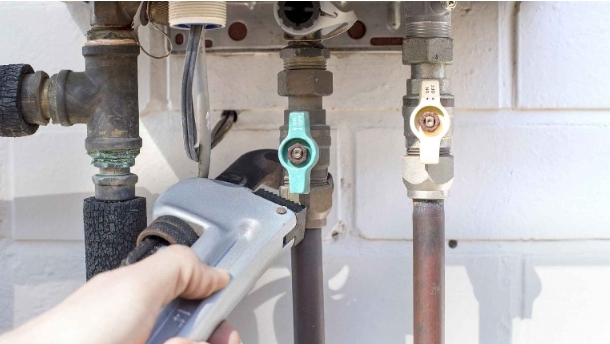
Gas leaks are a significant hazard that can lead to catastrophic consequences if not identified and addressed promptly. Understanding the common causes of Gas Safety Certificate and how to avoid them is crucial for maintaining a Gas Safety environment in homes and businesses. Whether you’re a homeowner or a business owner, ensuring that your property has the proper Gas Safety Certificates in London is essential. In this blog, we will explore the typical reasons behind gas leaks and offer practical advice on how to prevent them.
Common Causes of Gas Leaks
Faulty Appliances and Equipment
One of the most common causes of gas leaks is faulty appliances and equipment. Gas-powered appliances like stoves, ovens, water heaters, and boilers can develop issues over time. If these appliances are not properly maintained or installed, they can become a source of gas leaks. Worn-out seals, damaged connections, and malfunctioning components can all contribute to a gas leak.
Old or poorly maintained appliances are particularly prone to leaks. Gas lines that are corroded or damaged may also pose a risk, especially if they are located near appliances that generate heat, which can exacerbate the problem.
Poor Installation Practices
Improper installation of gas appliances and systems is another leading cause of gas leaks. When gas lines and appliances are not installed by qualified professionals, the risk of leaks increases significantly. Poor installation can lead to loose fittings, inadequate sealing, and other issues that may go unnoticed until a leak occurs.
In some cases, homeowners may attempt to install or repair gas appliances themselves, which can result in dangerous situations. Without the proper knowledge and experience, it is easy to overlook critical safety measures, leading to potential gas leaks.
Aging Infrastructure
As buildings and infrastructure age, the materials used in gas lines and connections can deteriorate. This natural wear and tear can lead to cracks, corrosion, and other forms of damage that can cause gas leaks. Older homes and buildings are especially vulnerable to this issue, as the gas lines may not have been inspected or replaced in decades.
In many cases, aging infrastructure may not be immediately visible, making it difficult for homeowners to recognize the risk. However, routine inspections by professionals can help identify and address these issues before they lead to a leak.
Accidental Damage
Accidental damage to gas lines is another common cause of leaks. This can occur during construction, renovation, or even simple DIY projects. For example, drilling into a wall without knowing the location of gas lines can puncture the pipe, leading to a leak. Similarly, outdoor gas lines can be damaged by digging or landscaping activities.
Accidental damage is often preventable with proper planning and caution. Knowing the location of gas lines and taking appropriate precautions can reduce the risk of accidentally causing a gas leak.
Environmental Factors
Environmental factors can also contribute to gas leaks. Natural disasters like earthquakes, floods, and landslides can damage gas lines, leading to leaks. Extreme weather conditions, such as freezing temperatures, can cause pipes to crack or burst, increasing the likelihood of a leak.
While environmental factors are beyond our control, being aware of the potential risks and taking preventive measures can help mitigate the impact of these events on gas lines.
How to Avoid Gas Leaks
Regular Maintenance and Inspection
One of the most effective ways to prevent gas leaks is through regular maintenance and inspection of gas appliances and systems. Professional inspections should be conducted annually to ensure that all components are in good working order. During these inspections, a qualified technician can identify any potential issues, such as worn-out seals or corroded pipes, and address them before they lead to a leak.
Homeowners should also perform routine checks on their appliances, looking for any signs of wear or damage. If any issues are detected, it is important to have them repaired by a professional as soon as possible.
Proper Installation by Professionals
To avoid gas leaks, it is essential to have all gas appliances and systems installed by qualified professionals. Proper installation ensures that all connections are secure and that safety measures are in place to prevent leaks. When installing new appliances or replacing old ones, always hire a licensed technician with experience in handling gas systems.
For those who are moving into a new home or renovating an existing one, it is advisable to have the gas lines inspected by a professional to ensure they are in good condition and free from potential hazards.
Awareness and Precaution During Home Projects
Before starting any home improvement project, it is important to know the location of gas lines within the property. This information can usually be obtained from utility companies or by using specialized equipment. Once the location of the gas lines is known, take precautions to avoid damaging them during the project.
If there is any uncertainty about the location of gas lines or the safety of a project, it is best to consult with a professional. This can help prevent accidental damage and the subsequent risk of a gas leak.
Upgrade and Replace Aging Infrastructure
For homes and buildings with aging infrastructure, upgrading or replacing old gas lines can significantly reduce the risk of leaks. This is especially important in older properties where the gas lines may not have been updated in many years. A professional inspection can determine whether the gas lines need to be replaced or if they can be safely repaired.
Investing in modern materials and technology can also enhance the safety of gas systems. Newer gas lines and appliances are often designed with improved safety features that can help prevent leaks.
Responding to Environmental Risks
While it is impossible to control environmental factors, being prepared for potential risks can help minimize the impact on gas systems. In areas prone to natural disasters, it is advisable to have gas lines inspected after such events to ensure they have not been damaged.
Homeowners should also be aware of the signs of a gas leak, such as the smell of gas, hissing sounds, or dead vegetation near gas lines. If a gas leak is suspected, it is important to evacuate the area immediately and contact emergency services.
Conclusion
- Gas leaks are a serious concern that can lead to dangerous situations if not properly managed. By understanding the common causes of gas leaks and taking proactive steps to avoid them, homeowners and businesses can protect themselves from potential hazards. Regular maintenance, professional installation, awareness during home projects, upgrading aging infrastructure, and responding to environmental risks are all key strategies in preventing gas leaks. Additionally, ensuring compliance with safety regulations by obtaining necessary certifications, such as those provided by EICR Cert, can further reduce risks. Taking these precautions can ensure a safe and secure environment, reducing the risk of gas leaks and the dangers they pose, If you want to stay updated with posts like this, please follow us on Fundly Live.


